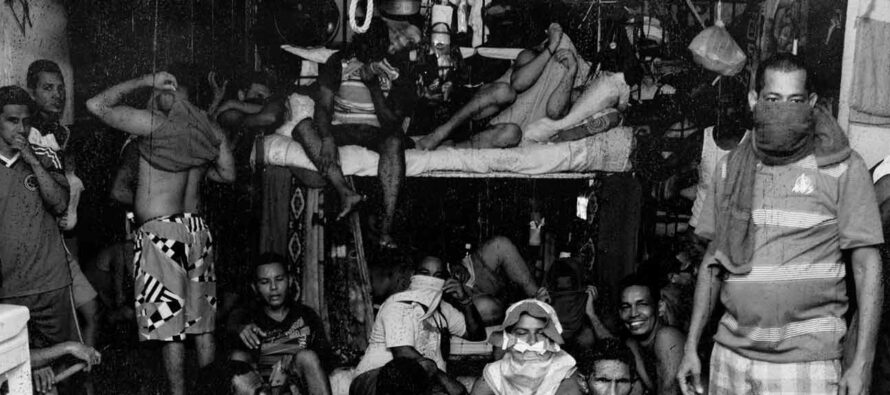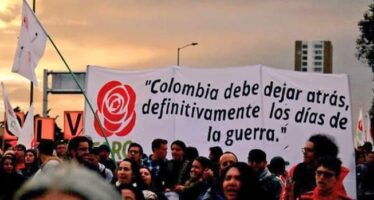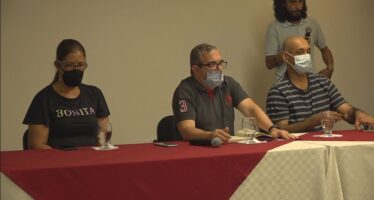Two more deaths in prison as protest escalates

![]()
On April 3 inmates at the Prison Doña Juana (Caldas) staged yet another struggle to demand their rights, denounce aberrant medical malpractice and draw attention to the constant violation of human rights within the Colombian prison system.
There are rumours, says the Collective of Lawyers and Prensa Rural, of a general strike in several prisons in the country to counteract, through struggle, institutional neglect and media apathy that cover up the serious problem.
On 5 May Justice Minister, Jorge Londoño, once again proclaimed a prisons emergency due to the crisis in health; the measures announced by the institution are the already notorious and ineffective health brigades, as well as the “modification of the Inpec manual to allow health professionals who are currently officers of administrative areas to perform welfare functions” and the provision of health areas. Insignificant solutions that are repeated again and again without having any effect on the prison population living firsthand the indignities of the system. This without taking into account the serious problem of poor nutrition, overcrowding, corruption, potable water, education, human rights violation and the ineffectiveness of the legal offices.
On May 10, just five days after the prison emergency was announced, political prisoner Francisco Luis Correa Gallego died in Bogota’s Modelo prison. The prisoner was suffering from “Guillain Barre Syndrome” and due to severe poisoning, his condition worsened dramatically in just one week. After being transferred twice to the health center of the prison, all that he was given was acetaminophen. Francisco lost consciousness and mobility. On
6 May he was sent to the Founders Clinic where he eventually died in solitude and government neglect.
To this dramatic reality we have to
add the death of Pablo Antonio Medina Soriano, a prisoner in Cucuta jail. After four years suffering a serious illness in total medical neglect, the man died last week in appalling conditions.
We have to
add to this the constant violation by prison and surveillance guards who indiscriminately act against all prisoners, regardless their status. In prisons like Arauca, Palo Gordo, in Santander, Cúcuta and Picota in Bogota, to name only some of them, the Inpec has used permanent assaults, beatings, transfers and humiliation against prisoners who organized to denounce and reaffirm the rights they are denied daily.
With an index of overcrowding at 54.9%, the current situation of the Colombian prison system is truly alarming and doesn’t require any emergency decrees. What is urgently needed is a criminal policy consistent and coherent to the social, economic and political needs of our country and a specific criminal alternative allowing to address the seriously the problem of overcrowding, in a system where 36% of the prison population is unionized.
The problem of the Colombian prison system is a structural problem and not just an institutional shortcoming and therefore it should not be analyzed as a simple problem of quotas and lack of staff.
Related Articles
Declaración Pública del partido FARC
![]()
Publicamos el comunicado del partido FARC sobre el anuncio de Ivan Marquez de retomar las armas.
ELN le propone a Santos un Acuerdo Nacional de Paz
![]()
En un video colgado en Internet, Nicolás Rodríguez Bautista, alias Gabino, primer comandante del ELN, señala que quiere retomar nuevos caminos
FARC Party holds General Assembly
![]()
The left-wing FARC party, created after the signing of the Final Peace Agreement in Havana between the Colombian government and




